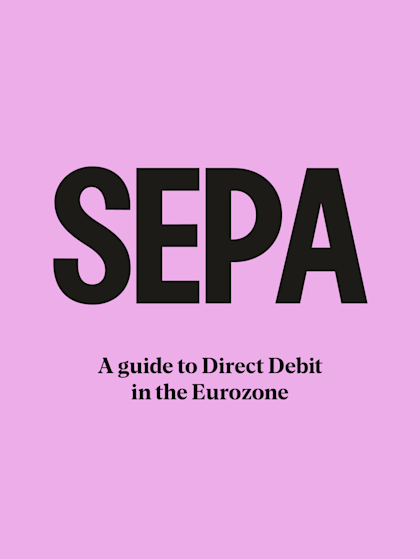Last editedApr 20232 min read
This guide explains the protections your customers receive, your obligations, and how GoCardless can help you to manage any claims.
SEPA Direct Debit customers are protected from payments taken in error.
In the case of any incorrect or fraudulent payments, the payer is entitled to a full and immediate refund from their bank. These protections offered by SEPA Direct Debit, however, are time limited.
This guide will explain the protections your customers receive, your obligations, and how GoCardless can help you to manage any claims.
SEPA Core Direct Debit scheme
The SEPA Core Direct Debit scheme protects customers in three ways:
Notifications - Customers must be notified in advance of each payment. See our guide to taking payments for more details.
Refunds - Customers are (subject to time limits) entitled to refunds for authorized and unauthorized Direct Debit collections. See the refunds section (below) for further details.
Control - Customers are able to:
Instruct how to handle incoming collections by specific merchants, or draw up black lists (i.e. blocking SEPA Direct Debits from certain merchants) and white lists (i.e. allowing SEPA Direct Debits from certain merchants)
Set maximum payment amounts and specify payment intervals
Block all Direct Debit collections from their account
How to collect SEPA Direct Debit payments with GoCardless
1.
Create your free GoCardless account, access your user-friendly payments dashboard & connect your accounting software (if you use one).
2.
Easily set up & schedule SEPA Direct Debit payments via payment pages on your website checkout or secure payment links.
3.
From now on you'll get paid on time, every time, as GoCardless automatically collects payment on the scheduled Direct Debit collection date. Simple.
SEPA B2B Direct Debit scheme
The SEPA B2B scheme is only available to businesses, and provides weaker protections:
Notifications - Customers must be notified in advance of each payment. See our guide to taking payments for more details.
Refunds – Customers are (subject to time limits) only entitled to refunds for unauthorized Direct Debit collections. See Refunds (below) for further details.
Validation by the customer’s bank - The payer’s bank must check that any mandate has been duly issued and authorized by the payer, and that the mandate-related data received with each collection corresponds with the information contained in the original mandate, before debiting the payer’s account. The payer’s bank will also need to comply with any further verification instructions provided by the payer. This is because there is no right to a refund.
Each of the above protections are enforced by the banks and so form an intrinsic part of the SEPA Direct Debit scheme. Refunds are processed by the payer's bank without prior discussion with the merchant.
Refunds
No-questions-asked refunds
(Core scheme customers only)
Refunds which are requested within eight weeks of the SEPA Direct Debit being debited will be provided by a payer’s bank on a no-questions-asked basis.
If a refund is requested, the customer's bank will immediately credit the customer with a full refund. They will then notify the merchant of the chargeback via our dashboard or API with a reason code (see our guide to receiving messages from the banks). The amount refunded to the customer will be automatically reclaimed from the merchant.
Refunds of unauthorized transactions
(B2B scheme customers, and Core scheme customers if not within eight weeks)
If the request for a refund concerns an unauthorized transaction (and, if under the Core scheme, is not within eight weeks of the payment), a customer must present its claim and any supporting evidence to their bank within 13 months of the debit date.
A SEPA Direct Debit is deemed to be an unauthorized transaction if any of the following are true:
No mandate exists
The mandate was invalid
The mandate has expired (no transactions for 36 months)
In practice, the customer's bank will always accept the word of the payer, and immediately credit them with a full refund. They will then notify the merchant of the chargeback via a message with a reason code (see our guide to receiving messages from the banks). The amount refunded to the customer will be reclaimed from the merchant automatically.
Dispute resolution
You may not agree that a chargeback claim should be upheld. If so, you may have to contact the payer to handle the claim outside of the scheme. A chargeback claim under the SEPA Direct Debit scheme does not impact any contractual agreements between a merchant and their customer.
SEPA customer protections and GoCardless
The protections detailed in this guide apply universally, however, GoCardless will help you to manage any chargeback claims by:
Immediately notifying you if a claim is made by one of your customers
Working with you and your customer to understand the cause, resolve any issues, and retake the payment if appropriate
To find out more about collecting SEPA Direct Debits, or to register your interest with GoCardless, visit our homepage.

